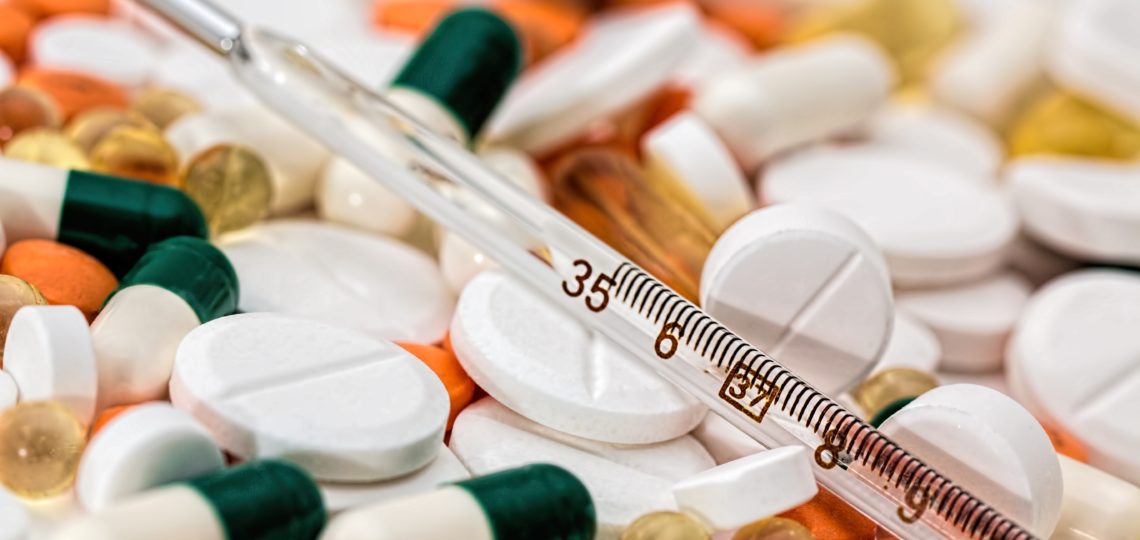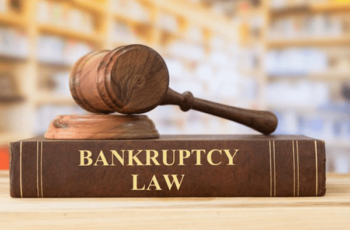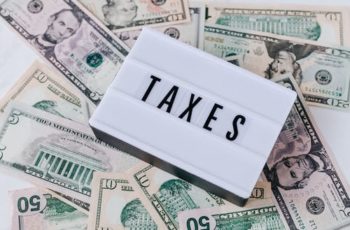Indian Pharma: Truth and Dare
Introduction
India is the largest exporter of generic medicines to almost all the developed countries in the world. India is known for its large pharmaceuticals manufacturing and distribution to all nations from African Countries to United States of America. But the face of Pharma is losing trust at an alarming rate and falls well behind hospitals and Bio-tech. The shocking truth is that India stands atop in distrust and disbelief. This fear is inculcated in the minds of the national and international consumers through a single book called Bottle of Lies. So the questions that sway our mind are
i) Does India really become untrustworthy?
ii) Are all the generic medicines sub-standard?
iii) What can be done to regain the lost confidence in Pharma Sector?
Indian generic drugs losing trust around the world
The generic medicines are exported in large quantity from India to USA. Though the approval process of the United States Food and Drug Administration (“FDA”) is cumbersome but Indian medicines are circulated in huge proportions because of low cost of these drugs and some political pressure. The FDA lost its confidence when Ranbaxy, one of the leading Pharma entities, was caught in the attempt to forge data regarding the manufacture of substandard Insulin and dispose evidence to avoid the penalties. This seriously questioned the authenticity of generic medicines created and exported from India. Moreover, the agency’s medicine Atorvastatin was found to contain glass fragments and failed the quality test. Similarly, Ranbaxy’s drug Coamoxiclav is valid only for eighteen months whereas the drug is endorsed by the company to be consumable within twenty-four months. This shattered the confidence of FDA and instructed to follow strict procedure while inspecting Indian Generic medicines.
The information spread like wildfire all around the world due to the book written by the Investigative Journalist, Katherine Eban. The Export material is usually of high quality thanks to the strict Vigilance of the Foreign Bodies and the agency/ entity acts as an indirect representation of the country in this globalised world. The ineffective/ sub-standard drugs will not only reduce the profits of the company but the goodwill of the country in Pharma and other related business fields all over the world. This incident tarnished the name of Ranbaxy and eventually brought down the country’s Pharma business. The bitter truth is that the effect is extended to all generic medicines and a strong impression was made in the minds of public that all generic medicines are of sub-standard quality.
Quality of drugs within India
In India, the situation is quite different. The Surgeons prefer branded drugs over the generic medicines and the people are more attracted towards the doctors. The branded drugs reap profits due to the ignorance of laymen and it is to be noted that many manufacture companies manufacture both the generic medicines and brand medicines. Generic medicines are exported to foreign countries whereas branded medicines are well-circulated within India. Moreover, the Lax Regulatory Policing in India permits the use of lower quality ingredients and recourse to manufacturing short-cuts. The companies in India follow Dual Track Production Method, where the pharma companies produce goods depending upon the target country. With more political intervention and unethical practices like corruption, India ends up being the victim of Spurious/ Falsely-Labelled/ Falsified/ Counterfeit (“SFFC”) drugs that can result in treatment failure or even death.
The International Medical Products Anti Counterfeiting Taskforce (“IMPACT”) of World Health Organisation (“WHO”) defines SFFC medicines as
Medicines which are deliberately and fraudulently mislabelled with respect to identity and/ or source, and also which may include products with correct ingredients or with the wrong ingredients, without active ingredients, with insufficient or too much active ingredient or with fake packaging
It is surprising to see that Indian consumers prefer SFFC drugs to branded drugs due to their cheap price, easy accessibility and availability in market. Poverty and ignorance contribute to the demand for counterfeit and substandard drugs. Moreover, the situation remains Status Quo (or gets even worse) with the ignorance of people to find out poor quality of drugs, circulation of unregistered medicines, lenient penalties and ineffective implementation of laws.
Bottle of lies effect
Bottle of Lies: Ranbaxy and the Dark Side of Indian Pharma, was authored by the Investigative Journalist, Katherine Eban. The book had a tremendous influence on the Indian Pharma market by eventually reducing the trust on Generic medicines and ultimately spoiling India’s name. The book explained the nature of the Pharma Agency, activities, manufacture of drugs and relation with the Government and other similar agencies. The Book also concentrated on Culture clash due to the acquisition of Ranbaxy by Japanese Daiichi Sankyo. India was portrayed as a country which is known for Ultra-aggressive progress but follows less ethics to reach the goal. Though the Pharma Agency had done fraud, it is to be noted that the book deals with only one dimension as it focuses only on Generic medicines pertaining only to United States Market. The book started influencing the Indian Pharma business in other countries, which again reminds us that we live in a global village well connected through communication channels. The action of one Ranbaxy is started to be used as an infamous example to discourage Indian products in international realm.
Why India must regain its trust?
Pharmaceutical Industry is a multi-dimensional sector and it is one of the most influential business concerns in the world. With increasing population, unhealthy food, work stress and lifestyle, we welcome new diseases, health hazards and deficiencies. So the need for drugs and medicines are always on a hike which necessitates the regulation of Pharma Sector in India.
Here, we can see the imbalance between branded and generic drugs at one hand and exported and indigenous drugs on other hand. The Indian products are slowly condemned due to the allegation that all Indian drugs are of sub-standard nature. In a report, it has been declared by the European Commission that 75% of global cases of SFFC medicines originate from India. Since, India being the largest exporter of generic drugs, it is the duty of the entities not to exploit huge market and people for profits. Apart from Indian Pharma Business, the public health will be compromised if this continues. These generic drugs are widely used for its low cost and accessibility. By taking advantage of the situation, the branded drugs will be circulated and the branded companies will benefit at the cost of lives.
Unethical Practices in Indian Pharma Sector:
It is intriguing to see various methods being adopted by the companies and individuals to reap undue benefits from the drugs. Some of the practices are being discussed below:
i) Evergreen Patents
With the advent of Intellectual Property Rights, Pharma companies have taken steps to have complete monopoly over certain generic medicines. Since the Patent term is for 20 years , companies will get the patent for the medicines and then with superfluous modification to the chemical composition.
ii) Industry Funding to research and education
The Pharmaceutical industries fund the hospitals and charitable organisations which may sound like a genuine assistance to health sector but it is an indirect promotion to their own products. Some of the notable biases will pop up in the due course:
a) Preferential funding to the drugs that the Pharma companies wanted to test.
b) Poor Trials will help in projecting the drugs as effective products in public sphere.
c) Clinical trials will be concentrated only on the drugs created and wanted to be promoted by the companies.
d) The companies also fund the Continuous Medical Education which is aimed at educating the Physicians on the drugs and chemical compositions. But these events are usually a marketing attempt in the guise of educational event.
iii) Ghostwriting and Publication Bias
Some Pharmaceutical companies engage professional medical practitioners and academicians to write articles and publications on the drugs produced by them. So the articles will be published in core scientific publications which increase the objectivity and promote the trust on the drugs but they will not publish the failed clinical trials.
iv) Alluring Doctors
It is a study on behaviourism of physicians on why they choose the specific drug and his loyalty towards a particular company. To switch the drugs, the Companies usually provide indirect gifts to doctors like materials, trip plans, discounts etc.
Suggestions to recover and regain the market
The Drugs and Cosmetics Act, 1940 has special provisions for penalties for misbranded, spurious and adulterated drugs. The Act also includes a column of NSQ (Not of Standard Quality) under categories of A, B and C (in descending order from worst quality to less quality of drugs). The Government must take actions to spread awareness so that general public will have idea about SFFC drugs.
Strict Regulation on Patents: The existing drugs are projected as new drugs with slight modification in the chemical composition with no difference in the effectiveness of the drug. The Government and the Patent Office must take essential steps in promoting creativity and to prevent the use of old drugs in disguise.
Central Drug Standards Control Organisation must take adequate steps to conduct Inspections at product and manufacturing levels. The Organisation must follow ALCOA – Attributable, Legible, Contemporaneously recorded, Original and Accurate Process Validation. Moreover, the Organisation must conduct inspections without notice to the agencies and storage units to check the exact functioning of the units.
The Government must track on the cartels existing among the doctors, Diagnostic Labs and Pharmaceuticals to prevent undue profits gained by them at the cost of general public. On 06 January, 2020, the Madras High Court has delivered a suo moto order to regulate the relation between Doctors, Pharma Companies and Diagnostic Labs. The significant issue is the swindling of money through a mutual agreement among the doctors and companies, making the general public, the ultimate victims. Though the Indian Medical Council (Professional conduct, Etiquette and Ethics) Regulations, 2002 (“2002 Regulations”), deals with the expected relationship between a doctor and a pharmaceutical, there is no complete law to regulate the role of the pharmaceuticals. The Hon’ble High Court has directed to issue notice to the Medical Council of India on their steps against doctors for violating the 2002 Regulations. Moreover, the High Court has drafted issues to enquire the Medical Council, Ministry of Health and Family Welfare, Ministry of Pharmaceuticals, Income Tax Department and the Central Government to know the actions taken by the competent authorities and to put a check on the overpricing of medicines.
Drug Pricing Cap: The Drug (Prices Control) Order, 2013 and the Drug (Prices Control) Amendment Order, 2019 gives exemption to a) newly patented drugs, b) new drug created by new process and c) new drug involving new delivery system through Indigenous Research and Development. This amendment was recently questioned in Hon’ble Delhi High Court as the amendment is found to be an arbitrary link between Indian Patents Act, 1970 and Essential Commodities Act, 1955. We can see that
The drugs necessary to cure critical and life-threatening diseases are not exempted.
The drugs are not accessible by the needy and underprivileged sections of society.
The manufacturers will start reaping the profits by making use of the legal exemptions.
The Price Orders are in contravention to the National List of Essential Medicines and National Pharmaceuticals Pricing Policy and India’s adoption to TRIPS Agreement.
These orders will affect the availability and affordability of life-saving drugs.
In the present case, the Hon’ble HC has issued notice to the other side. This situation shows that the object of the Essential Commodities Act is compromised and the imbalanced link between various legislations must be avoided. The Legislation must take proper steps to avoid the same and the people can resort to judiciary proceedings if such laws are created.
Conclusion
Though Pharma Sector is viewed as a sector dealing with promotion and marketing of the drugs, it cannot be denied that the Pharma companies and retailers have a huge role in regulation of public health. From the above discussion it is evident that the Pharma companies are reaping benefits from all possible angles. Due to these rash and material actions of certain companies, India is losing trust both in International and national parlance. Thus there arises a need for a separate law for regulating the Pharmaceuticals in India. The Government must take stringent measures to avoid the manufacture, circulation and promotion of drugs and medicines so that public health will not be compromised and also the companies will get reasonable benefits. It is the ultimate duty of the nation and any country to make their people understand that generic medicines do not equate to sub-standard medicines. This also lies in the hands of the companies doing international business as they are the representatives of our nation and our life quality.









 He holds a Bachelor’s and Master’s Degree in Corporate Secretaryship and a Degree in Law. He is a Fellow member of the Institute of Company Secretaries of India and an Associate Member of the Corporate Governance Institute, UK and Ireland. He has also completed a program from ISB on ‘Value Creation through Mergers and Acquisitions.
He holds a Bachelor’s and Master’s Degree in Corporate Secretaryship and a Degree in Law. He is a Fellow member of the Institute of Company Secretaries of India and an Associate Member of the Corporate Governance Institute, UK and Ireland. He has also completed a program from ISB on ‘Value Creation through Mergers and Acquisitions. Mr P Muthusamy is an Indian Revenue Service (IRS) officer with an outstanding career of 30+ years of experience and expertise in all niche areas of Indirect Taxes covering a wide spectrum including GST, Customs, GATT Valuation, Central Excise and Foreign Trade.
Mr P Muthusamy is an Indian Revenue Service (IRS) officer with an outstanding career of 30+ years of experience and expertise in all niche areas of Indirect Taxes covering a wide spectrum including GST, Customs, GATT Valuation, Central Excise and Foreign Trade. During his judicial role, he heard and decided a large number of cases, including some of the most sensitive, complicated, and high-stake matters on insolvency and bankruptcy, including many cases on resolution plans, shareholder disputes and Schemes of Amalgamation, De-mergers, restructuring etc.,
During his judicial role, he heard and decided a large number of cases, including some of the most sensitive, complicated, and high-stake matters on insolvency and bankruptcy, including many cases on resolution plans, shareholder disputes and Schemes of Amalgamation, De-mergers, restructuring etc., Ms. Sarah Abraham has been enrolled with the Bar Council of Tamil Nadu since 1998. Her areas of practice include Shareholder Disputes, Corporate Compliances, Mergers and Acquisitions, Private Equity/ Venture Capital Agreements and allied disputes, Information Technology Contracts, Intellectual Property, General Commercial Agreements, Litigation, Arbitration and Mediation.
Ms. Sarah Abraham has been enrolled with the Bar Council of Tamil Nadu since 1998. Her areas of practice include Shareholder Disputes, Corporate Compliances, Mergers and Acquisitions, Private Equity/ Venture Capital Agreements and allied disputes, Information Technology Contracts, Intellectual Property, General Commercial Agreements, Litigation, Arbitration and Mediation. A K Mylsamy is the Founder, Managing Partner and the anchor of the firm. He holds a Degree in law and a Degree in Literature. He is enrolled with the Bar Council of Tamil Nadu.
A K Mylsamy is the Founder, Managing Partner and the anchor of the firm. He holds a Degree in law and a Degree in Literature. He is enrolled with the Bar Council of Tamil Nadu. M Subathra holds a Degree in law and a Master’s Degree in International Business Law from the University of Manchester, United Kingdom. She is enrolled with the Bar Council of Tamil Nadu.
M Subathra holds a Degree in law and a Master’s Degree in International Business Law from the University of Manchester, United Kingdom. She is enrolled with the Bar Council of Tamil Nadu. Mr. K Rajendran is a former Indian Revenue Service (IRS) officer with a distinguished service of 35 years in the Indirect Taxation Department with rich experience and expertise in the fields of Customs, Central Excise, Service Tax and GST. He possesses Master’s Degree in English literature. Prior to joining the Department, he served for the All India Radio, Coimbatore for a period of about 4 years.
Mr. K Rajendran is a former Indian Revenue Service (IRS) officer with a distinguished service of 35 years in the Indirect Taxation Department with rich experience and expertise in the fields of Customs, Central Excise, Service Tax and GST. He possesses Master’s Degree in English literature. Prior to joining the Department, he served for the All India Radio, Coimbatore for a period of about 4 years. An MBA from the Indian Institute of Management, Calcutta, and an M.Sc. in Tourism Management from the Scottish Hotel School, UK, Ashok Anantram was one fo the earliest IIM graduates to enter the Indian hospitality industry. He joined India Tourism Development Corporation (ITDC) in 1970 and after a brief stint proceeded to the UK on a scholarship. On his return to India, he joined ITC Hotels Limited in 1975. Over the 30 years in this Organisation, he held senior leadership positions in Sales & Marketing and was its Vice President – Sales & Marketing. He was closely involved in decision making at the corporate level and saw the chain grow from a single hotel in 1975 to a very large multi-brand professional hospitality group.
An MBA from the Indian Institute of Management, Calcutta, and an M.Sc. in Tourism Management from the Scottish Hotel School, UK, Ashok Anantram was one fo the earliest IIM graduates to enter the Indian hospitality industry. He joined India Tourism Development Corporation (ITDC) in 1970 and after a brief stint proceeded to the UK on a scholarship. On his return to India, he joined ITC Hotels Limited in 1975. Over the 30 years in this Organisation, he held senior leadership positions in Sales & Marketing and was its Vice President – Sales & Marketing. He was closely involved in decision making at the corporate level and saw the chain grow from a single hotel in 1975 to a very large multi-brand professional hospitality group. Mani holds a Bachelor Degree in Science and P.G. Diploma in Journalism and Public Relations. He has a rich and varied experience of over 4 decades in Banking, Finance, Hospitality and freelance Journalism. He began his career with Andhra Bank and had the benefit of several training programs in Banking.
Mani holds a Bachelor Degree in Science and P.G. Diploma in Journalism and Public Relations. He has a rich and varied experience of over 4 decades in Banking, Finance, Hospitality and freelance Journalism. He began his career with Andhra Bank and had the benefit of several training programs in Banking. Mr. Kailash Chandra Kala joined the Department of Revenue, Ministry of Finance as ‘Customs Appraiser’ at Mumbai in the year 1993.
Mr. Kailash Chandra Kala joined the Department of Revenue, Ministry of Finance as ‘Customs Appraiser’ at Mumbai in the year 1993.
 S Ramanujam, is a Chartered Accountant with over 40 years of experience and specialization in areas of Corporate Tax, Mergers or Demergers, Restructuring and Acquisitions. He worked as the Executive Vice-President, Group Taxation of the UB Group, Bangalore.
S Ramanujam, is a Chartered Accountant with over 40 years of experience and specialization in areas of Corporate Tax, Mergers or Demergers, Restructuring and Acquisitions. He worked as the Executive Vice-President, Group Taxation of the UB Group, Bangalore. K K Balu holds a degree in B.A and B.L and is a Corporate Lawyer having over 50 years of Legal, Teaching and Judicial experience.
K K Balu holds a degree in B.A and B.L and is a Corporate Lawyer having over 50 years of Legal, Teaching and Judicial experience. Justice M. Jaichandren hails from an illustrious family of lawyers, academics and politicians. Justice Jaichandren majored in criminology and then qualified as a lawyer by securing a gold medal. He successfully practiced in the Madras High Court and appeared in several civil, criminal, consumer, labour, administrative and debt recovery tribunals. He held office as an Advocate for the Government (Writs Side) in Chennai and was on the panel of several government organizations as senior counsel. His true passion lay in practicing Constitutional laws with focus on writs in the Madras High Court. He was appointed Judge, High Court of Madras in December 2005 and retired in February 2017.
Justice M. Jaichandren hails from an illustrious family of lawyers, academics and politicians. Justice Jaichandren majored in criminology and then qualified as a lawyer by securing a gold medal. He successfully practiced in the Madras High Court and appeared in several civil, criminal, consumer, labour, administrative and debt recovery tribunals. He held office as an Advocate for the Government (Writs Side) in Chennai and was on the panel of several government organizations as senior counsel. His true passion lay in practicing Constitutional laws with focus on writs in the Madras High Court. He was appointed Judge, High Court of Madras in December 2005 and retired in February 2017. S Balasubramanian is a Commerce and Law Graduate. He is a member of the Delhi Bar Council, an associate Member of the Institute of Chartered Accountants of India, the Institute of Company Secretaries of India and Management Accountants of India.
S Balasubramanian is a Commerce and Law Graduate. He is a member of the Delhi Bar Council, an associate Member of the Institute of Chartered Accountants of India, the Institute of Company Secretaries of India and Management Accountants of India.